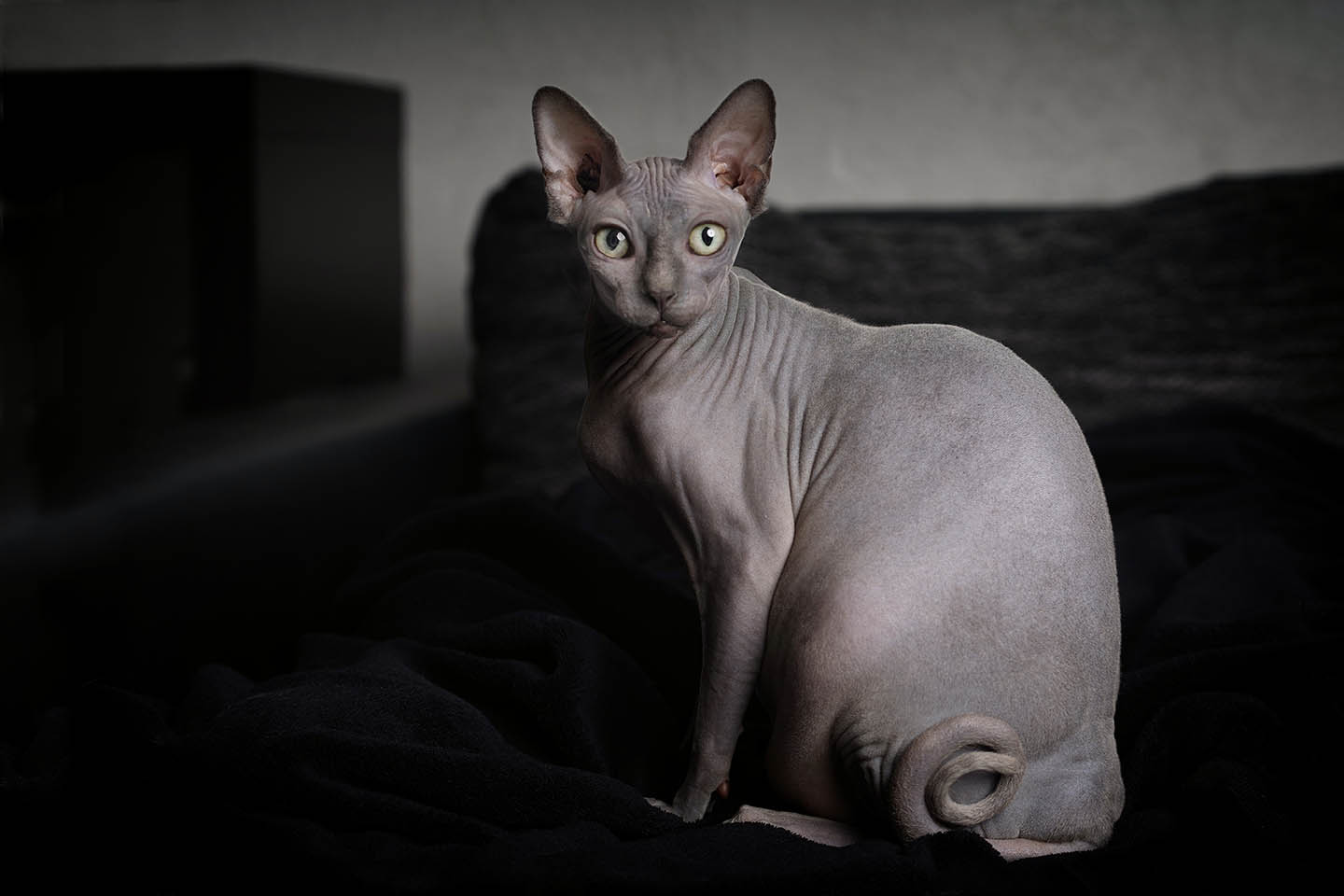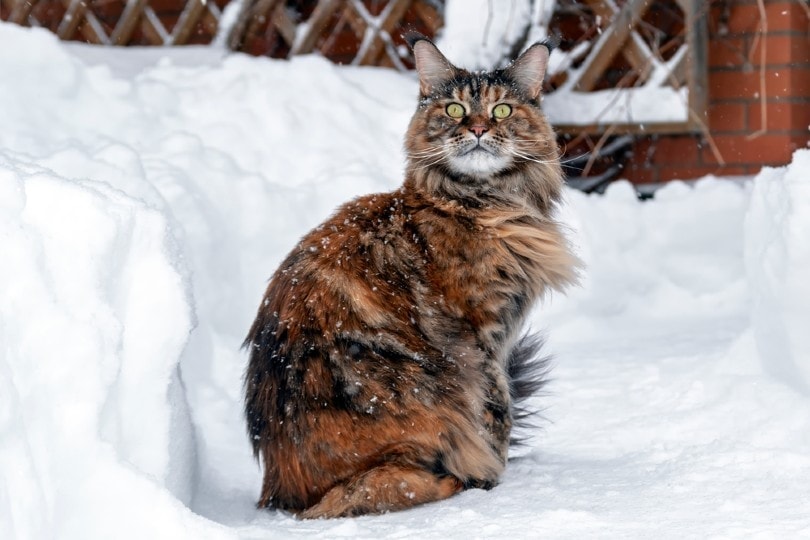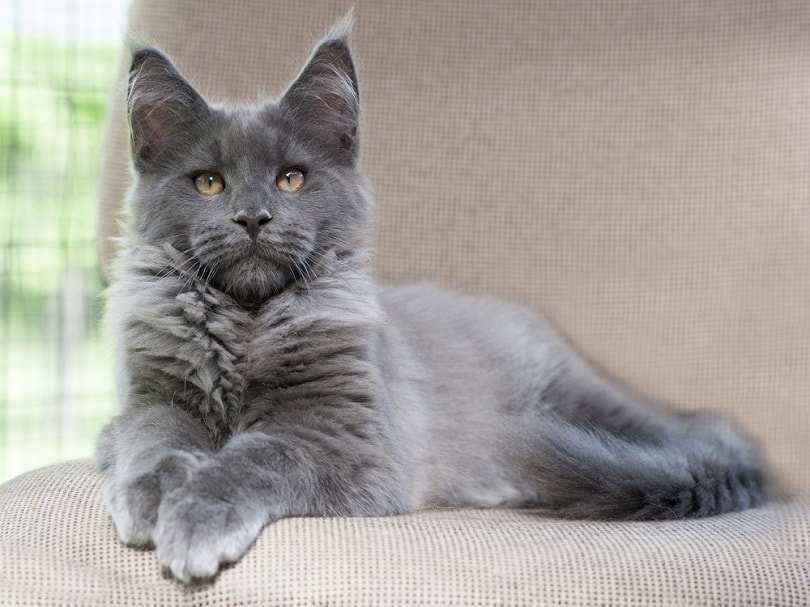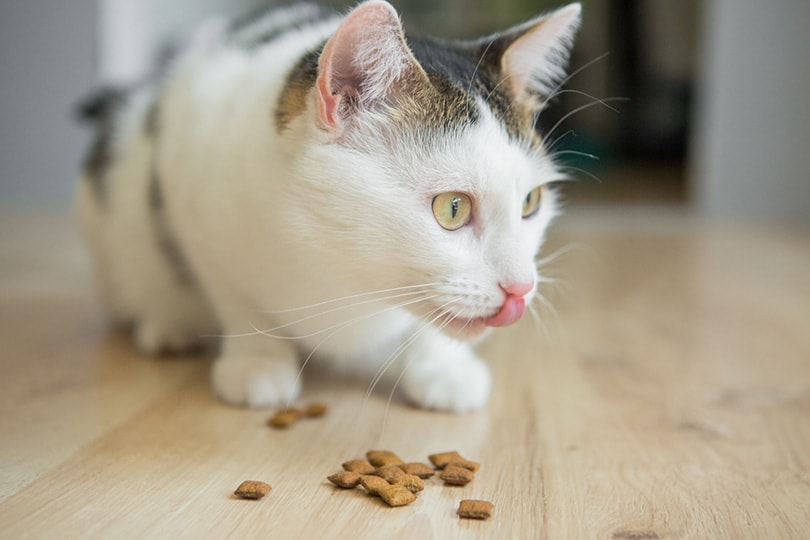Affectionately known as the “hairless” cat, Sphynx cats are one of the top 10 most popular cat breeds in the world. Their unique look and active, playful personalities can be hard to resist. As a bonus, their lack of hair makes them less likely to spread allergens into their environment, making them a better choice for cat lovers with allergies.
If you are one of the millions who’ve fallen under the spell of these charming cats, you might be curious how long you can expect to enjoy the company of your Sphynx cat. Obviously, you know your Sphynx can’t live forever, but how long do Sphynx cats usually live? One of the oldest cats ever recorded was a Sphynx named Grandpa Rex who lived to the incredible age of 34 years old! With that said, the average lifespan of a Sphynx cat is just 8-14 years.
Unfortunately, Sphynx cats do suffer from some health conditions that can shorten their lifespan. Keep reading to learn more about these as well as some tips to help your Sphynx cat live the longest and best life possible!
Sphynx Lifespan vs Other Cat Breeds
Reportedly, Grandpa Rex’s owner claimed to have several cats who lived past 30 years old. If that’s the case, he may not have considered Grandpa Rex’s record-breaking age that big of a deal compared to his other cats! So how does the Sphynx’s average lifespan of 8-14 years compare to other cat breeds?
Here’s a chart showing the Sphynx’s average lifespan versus the rest of the 10 most popular cat breeds:
| Sphynx | 8-14 years |
| Ragdoll | 12-15 years |
| Exotic | 12-14 years |
| Maine Coon | 10-16 years |
| Persian | 12-17 years |
| British Shorthair | 14-20 years |
| Devon Rex | 10-15 years |
| Abyssinian | 9-13 years |
| American Shorthair | 15-20 years |
| Scottish Fold | 9-12 years |
As you can see, the Sphynx’s average lifespan is less than many other popular cat breeds. However, keep in mind that these are averages and every cat is an individual.
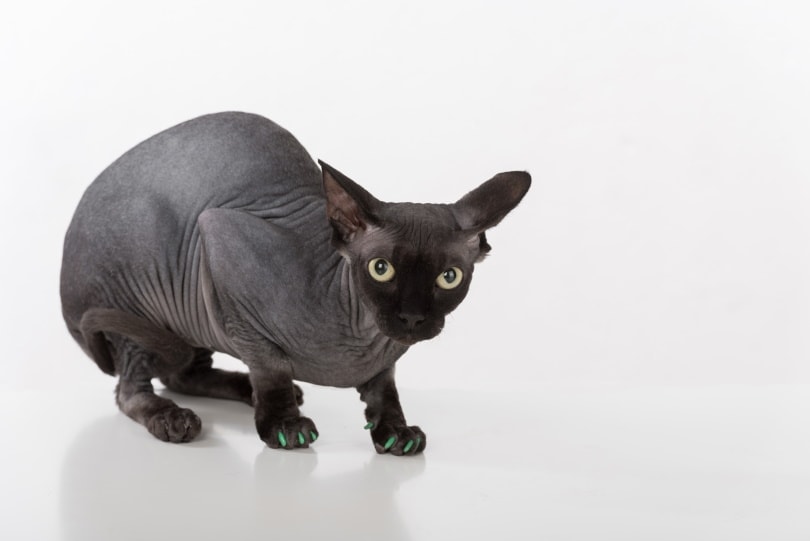
What Could Shorten a Sphynx’s Lifespan?
Some health conditions could shorten a Sphynx’s lifespan. One of the most common and most serious is a heart problem called hypertrophic cardiomyopathy (HCM).
What Is HCM?
HCM is one of the most common heart conditions in cats. It is especially common in many purebred cats including the Sphynx. When a cat has HCM, parts of its heart muscle become thicker than normal, impacting how well the heart works.
What Causes HCM?
HCM is believed to be caused by genetic issues with the heart muscle itself. Although it has a genetic cause, HCM is not thought to be an inherited disease, meaning a cat with HCM won’t necessarily pass along the disease if they are bred.
How Do You Know If Your Sphynx Has HCM?
There is no blood test to find HCM in a Sphynx cat. If your cat has HCM, your veterinarian might hear a heart murmur when they listen to their heart. However, not all cats with HCM have this symptom. The only way to know for sure whether your Sphynx has HCM is to have an ultrasound of their heart called an echocardiogram.

How Serious Is HCM?
How sick your Sphynx gets from HCM will depend on how bad the condition is. Some cats are only mildly impacted and may live a long, normal life. HCM can be a progressive disease, meaning it starts out being less serious and gets worse over time.
If your Sphynx gets severe HCM, they could go into heart failure or develop dangerous blood clots. Sadly, either of these complications can result in a shorter life for your Sphynx cat.
HCM can be treated with several different heart medications but cannot be cured completely.
Can You Prevent HCM?
There’s no way to prevent HCM. In fact, you should steer clear of Sphynx breeders who claim that their cats are guaranteed not to have HCM. This is impossible to know for sure. For your peace of mind, you can have regular heart checks of your Sphynx done with an echocardiogram, but this will just identify the condition as early as possible, not prevent it.
Other Health Concerns
Sphynx cats are prone to becoming overweight, which can lead to health problems in cats just like in people. They also tend to get dental disease and may also get skin infections without proper care. Unlike HCM, these health concerns can usually be prevented by responsible ownership.
Keeping Your Sphynx Cat Healthy
While you can’t prevent your Sphynx Cat from getting HCM, there are some other steps you can take to keep your Sphynx healthy and living as long as possible.
1. Feed Them Right

Remember Grandpa Rex, the Sphynx cat who lived to 34 years old? Well, according to his owner, Grandpa Rex only ate bacon, eggs, and either broccoli or asparagus. Not exactly the usual recommended diet for any cat! While it may have worked for Grandpa Rex, you’ll probably have a lot better chance of keeping your Sphynx healthy if you feed high-quality cat food instead.
The right diet is especially important for Sphynx cats because they do tend to be overweight. Making sure they eat just the right amount of nutritionally balanced food will help keep them fit and satisfied. Higher-quality cat food will also keep a Sphynx’s skin from becoming too oily. Excessively oily skin can lead to skin infections.
2. Take Care of Their Teeth
Sphynx cats are prone to having very bad teeth. Dental disease not only makes your cat’s breath smell terrible, but it can also lead to more serious health concerns. Sometimes a Sphynx’s teeth will get so bad they need to be pulled, which can be expensive. Dirty and infected teeth can also lead to infections in other parts of the body like the heart and kidneys.
Regular dental care is a must to keep a Sphynx cat healthy. You may be able to teach them to tolerate teeth brushing, especially if you start when they are young. If not, other products like dental treats or drinking water additives can be used. Ask your veterinarian for recommendations. You may also need to have your veterinarian perform regular dental cleanings on your Sphynx cat.
3. Keep Them Warm and Safe From The Sun
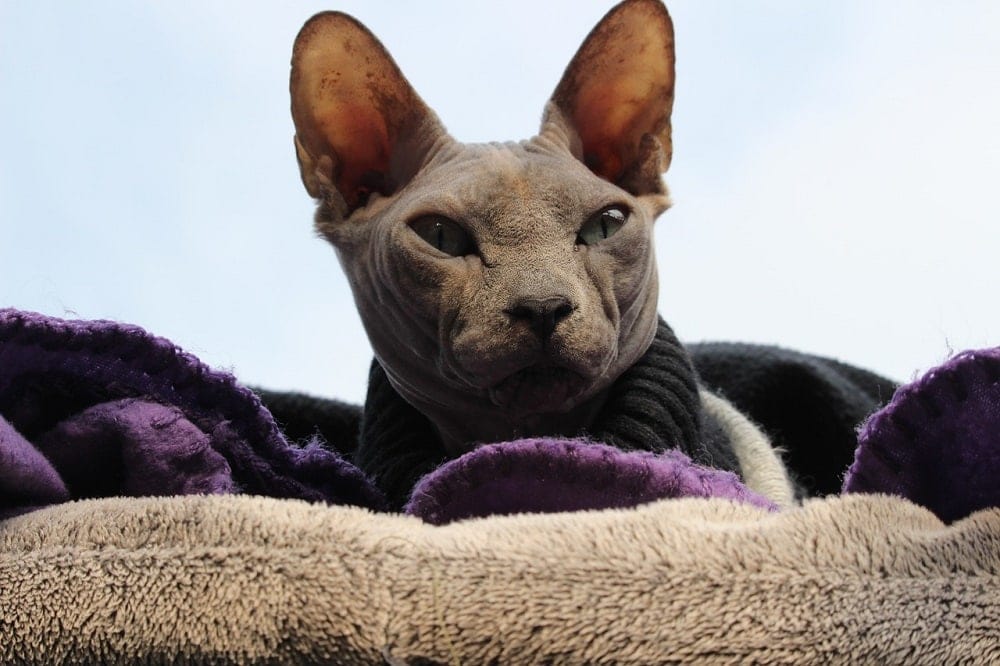
Unsurprisingly, the nearly hairless Sphynx gets cold more easily than a cat with fur. They should always be kept indoors in cold weather. Some Sphynx cats will tolerate wearing kitty sweaters or pajamas to stay warm but not all of them appreciate them. Plenty of snuggly blankets, warming pads, or heaters may be a better way to keep your Sphynx warm and toasty.
Lack of hair also means Sphynx cats can get sunburned. Limit their time in the sun if you give them outside playtime or leash walks. You may also need to put sun-blocking shades on windows near favorite napping spots.
Related Read: Are Sphynx Cats Hypoallergenic?
Conclusion
The popularity of Sphynx cats shows no sign of fading thanks to their social nature and one-of-a-kind looks. While an 8–14 year average lifespan may not seem long enough to the Sphynx’s devoted fans, keeping your cat healthy can help ensure you get the longest possible time with your fur-less baby. Do your research before bringing home a new Sphynx cat and pick a breeder who is as committed as you are to making sure your Sphynx has the healthiest possible start in life.
Did you know that the Sphynx comes in a variety of patterns and colors?
Featured Image Credit: Lightspruch, Shutterstock

